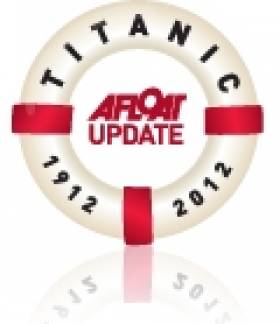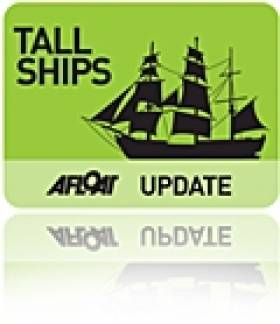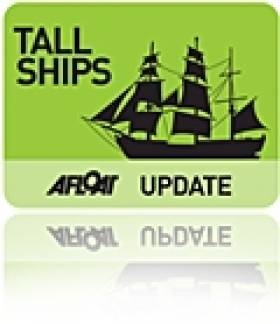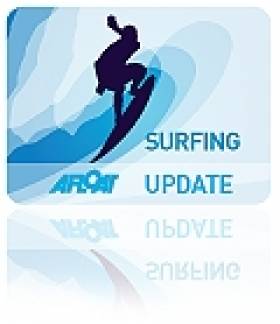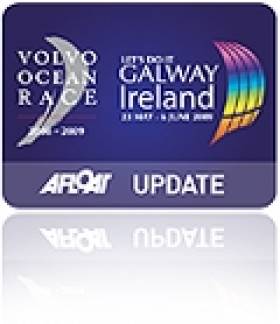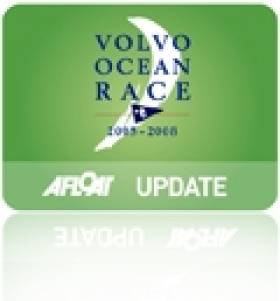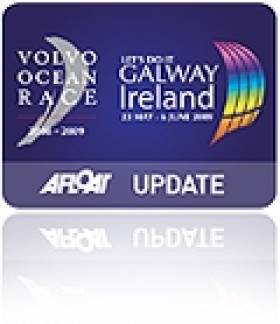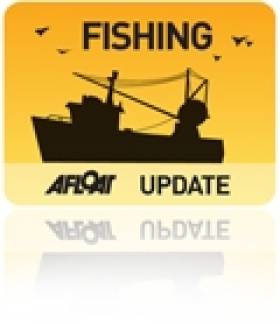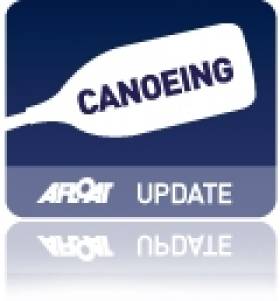Displaying items by tag: Spain
Titanic Belfast 'Is Designed to Impress'
#TITANIC - The Independent's Simon Calder reports on his special preview of Titanic Belfast, the £97 million (€116.3 million) tribute to the ill-fated ship on Belfast Lough.
"For once, the term 'of Titanic proportions' applies literally." he writes. "The top of the five-storey building is exactly as high as the tip of Titanic when the transatlantic liner was completed at the Harland and Wolff yard a century ago."
The monument is not only intended as a tribute to the tragedy, but also as a beacon to attract tourists to the "open, friendly city" of Belfast that has emerged after decades of the Troubles.
The travel writer compares the city's plans to the renaissance of Bilbao in northern Spain - like Belfast, a former shipbuilding centre damaged by terrorism that has become "a vibrant, elegant city that stands alongside Amsterdam, Barcelona and Berlin" thanks in part to the bold architecture of the Guggenheim museum.
Calder adds: "Almost every aspect of Titanic Belfast chimes with the city beyond the structure's metal jacket and big windows. And as with Titanic herself, the fitting out is designed to impress."
As previously reported on Afloat.ie, Titanic Belfast will be one of the largest employers in Northern Ireland’s tourism industry, as well as one of the North’s largest recruiters, when it opens later this month.
The Independent has much more on the story HERE.
Tall Ships Training Opportunities for Young People Across Ireland
#TALL SHIPS - The organisers of the Tall Ships Races visit to Dublin are inviting young people to get involved by becoming 'trainees' aboard the fleet as they race from Spain to Ireland this summer.
The 18 ships (as of last November) are set to sail from A Coruña in northern Spain to Dublin on the final leg of this year's race over an estimated ten-day period from 13-23 August.
Young people across Ireland can now apply to be trainees on board the tall ships and take part in a voyage as crew. No previous experience is necessary.
Open information days are planned for this weekend from tomorrow (Friday) 17 February to Sunday 19 February from 12pm to 6pm daily at the CHQ building in the IFSC, close to the Jeannie Johnston museum.
Anyone that is interested in taking part or receiving further information can register at www.dublintallships.ie/trainees/
Meanwhile, organisers are also making funding available for the young people of the capital.
The Dublin City Tall Ships Funding will cover the costs of 25 trainees from Dublin to sail on the ships as they race from Spain.
Any youth organisation within Dublin City Council Administrative Area can nominate members of their organisation. Alternatively, individuals may apply and seek the nomination of a youth organisation such as a youth group or community group; school or college; sports club or Scouts group.
Details about this funding programme and other opportunities are included in the information bulletin attached below.
For further information contact trainee recruitment officer Michael Byrne at [email protected].
Entry List Announced for Tall Ships Races 2012
#TALL SHIPS - Eighteen vessels are on the entry list for the 2012 Tall Ships Races which are set to conclude in Dublin Port next August.
The list is dominated by British entries, with all nine UK tall ships expected to sail the third and final leg from A Coruña in northern Spain to Dublin.
Tall ships from Russia, Poland, France, Ecuador, Bulgaria, Latvia, Estonia and Belgium will also be in the fray when Ireland's capital hosts the final port of call for the 2012 races, presented by Szczecin in Poland and organised by Sail Training International - a charity established to harness sail training to develop and educate young people regardless of nationality, culture, religion, gender or social background.
The first leg of the 2012 races kicks off in Saint-Malo, France on 7 July with ships racing to Lisbon in Portugal (till 21 July); Cádiz in southern Spain (21-28 July) and A Coruña (28 July-12 August) before the final leg.
Dublin will be hosting the Tall Ships Races for the first time since 1998. Earlier this year Eamonn O’Reilly, CEO of Dublin Port Company, said he was “delighted to welcome the Tall Ships Races to Dublin Port" in 2012.
Since the announcement the port has already played host to the British tall ship Tenacious and the Norwegian vessel S/S Statsraad Lehmkuhl.
From Thursday 23 to Sunday 26 August 2012 as many as 100 ships are expected to arrive in the port and Docklands area for an event that includes a four-day festival programme of music, food and fashion showcases, markets, street theatre, water sport and water-based activities.
The weekend will also feature activities unique to the races including a crew parade, prize-giving event and a parade of sail.
Are you looking to get involved in Dublin's hosting of the Tall Ships Races? Check out the following links:
Become a trainee www.dublintallships.ie/trainees/
Take part as a volunteer www.dublintallships.ie/volunteers/
For further information see www.dublintallships.ie or e-mail [email protected]
Entry List for the Tall Ships Races 2012:
Akela (Russia)
Black Diamond Of Durham (UK)
Dar Mlodziezy (Poland)
Etoile Polaire (France)
Guayas (Ecuador)
Johanna Lucretia (UK)
John Laing (UK)
Kaliakra (Bulgaria)
Lord Nelson (UK)
Maybe (UK)
Moosk (UK)
Pelican Of London (UK)
Pogoria (Poland)
Rona II (UK)
Spaniel (Latvia)
St Iv (Estonia)
Thermopylae Clipper (UK)
Tomidi (Belgium)
Irish Headed to Gran Canaria for Bodyboard Worlds
#SURFING - Ireland is set to field a team of Strandhill bodyboarders at the 12th ISA World Bodyboard Championships in Gran Canaria from next week.
The event will take place in the heavy slab waves of El Frontón and la Guancha at Galdar City from 30 November to 4 December 2011.
The competition also marks the first time that bodyboard-only teams from around the world will compete in the Open Men (Prone), Open Women (Prone), Under 18 Men (Prone) and Open Drop Knee divisions.
See video of action from El Frontón in 2010 below:
Galway's 2012 VOR Stopover Will Be 'Bigger and Better'
#VOLVO OCEAN RACE - Organisers for next year's Volvo Ocean Race stopover in Galway have promised the event will be "bigger and better" than the previous race visit in 2009.
John Killeen, president of Let's Do It Galway, told the Galway Independent that he expects as many as 8,000 foreign visitors to the City of the Tribes next July.
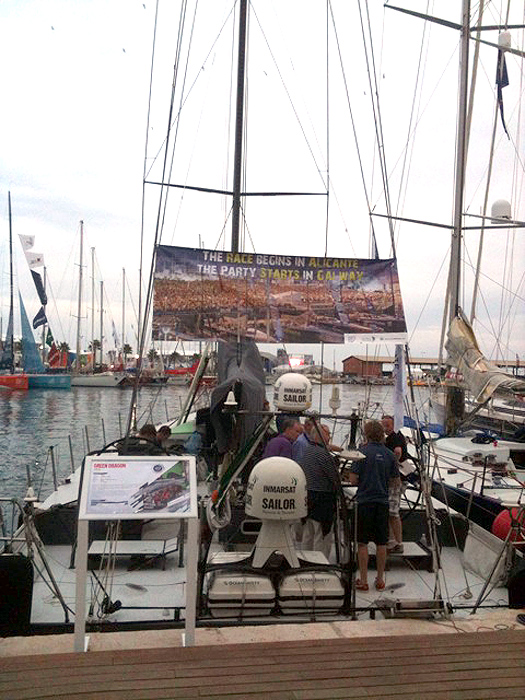
Green Dragon on show in Alicante this week – her dockside poster reads: 'the race begins in Alicante, the party starts in Galway'
Killeen is in Alicante on the Spanish Mediterranean for the week of events and in-port races leading up to the official start of the 2011-12 Volvo Ocean Race this Saturday.
The race is set to finish in Galway on Tuesday 3 July 2012, attracting the world's media to Ireland's fifth largest city for the final prize-giving.
Nimmo's Pier will be the focus of entertainment facilities for the many thousands expected to throng the city as the six competing yachts complete their epic challenge.
"It’s a rare opportunity for Galway and Ireland to have the leverage of such an event and, if we don’t [use it to benefit Galway], it will be remissible,” said Killeen.
The Galway Independent has more on the story HERE.
Galway Hooker En Route to Abu Dhabi in VOR Cultural Exchange
A traditional Irish sailing boat is on the way to Abu Dhabi in a cultural exchange that will also see six Arabian dhows in Galway for the finish of the Volvo Ocean Race next summer.
The National reports that the near-century-old Galway hooker Nora Bheag is being transported to the United Arab Emirates as part of a Maritime Heritage Cultural Exchange initiative, co-ordinated by Irish expat Peter Vine. (Track its progress at marinetraffic.com.)
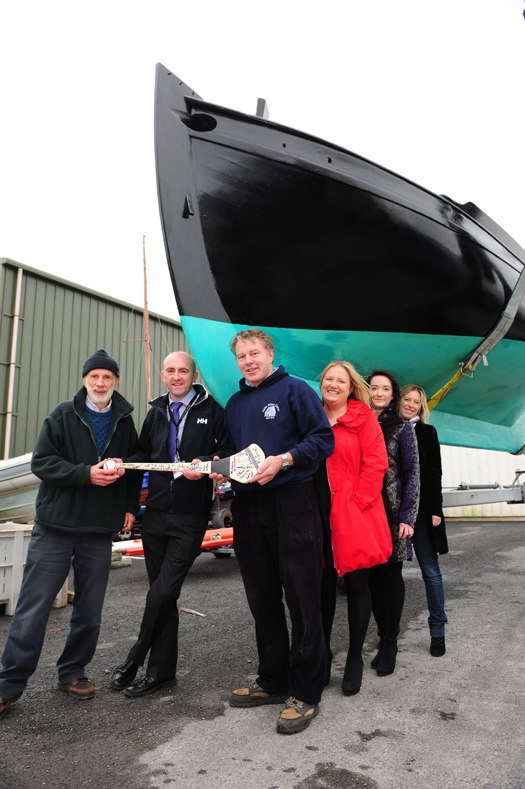
On her way: Nora Bheag heads for Abu Dhabi. Photo: Boyd Challenger
According to the Galway Independent, the boat is currently en route to Rotterdam in a container loaded with a small curach named Noa.
Plans to include turf and bottles of poitin were abandoned, however, due to customs concerns - instead two hurleys and a sliotar will make the trip.
Nora Bheag is expected to reach port by early December ahead of the Volvo Ocean Race fleet which arrives on 1 January, marking the first time the city has hosted and taken part in the race.
Vine says he came up with the idea of the boat swap because of the two countries' shared maritime heritage.
There are many similarities between hookers and dhows, too, from their comparable sail shapes to their usage for fishing and personal transport.
"This will be a huge common shared experience that will build true friendships and a real cultural exchange," said Vine. "I am hugely grateful to Emirates Heritage Club, which has done so much to revive Arabian dhows, for making such a project possible."
The National has more on the story HERE.
Meanwhile a delegation from Galway is set to travel to Spain later this week for the launch of the Volvo Ocean Race.
A week of events begins this Saturday ahead of the start of the race proper on 5 November in Alicante.
VOR Skipper Cammas Receives French Sporting Honour
Volvo Ocean Race skipper Franck Cammas has been presented with one of France’s most prestigious sporting honours.
The man in charge of the Groupama sailing team was awarded the Grand Prix de l’Académie des Sports in Paris recently, recognising his achievements in sailing in 2010.
These included his skippering of the 100ft trimaran Groupama 3 non-stop around the world in a record-breaking in 48 days, 7 hours, 44 minutes and 52 seconds.
Cammas is only the fifth sailor to be presented with the award, following Whitbread Round the World Race skipper Eric Tabarly, 1983 America’s Cup winner John Bertrand, solo sailor Isabelle Autissier and Alinghi team principal Ernesto Bertarelli.
But Cammas isn't resting on his laurels, as he's currently preparing with his team to compete in the next Volvo Ocean Race kicking off next month.
He will lead a crew of 11 sailors - including Kerryman Damian Foxall - on the 70ft monohull Volvo Open 70 Groupama 4 in the 39,000 nautical mile race, which is set to conclude in Galway next summer and will also involve Wexford sailor Justin Slattery, who is in the crew for Team Abu Dhabi.
The action starts in Alicante, Spain on 29 October with the first in-port race. The first leg to Cape Town then begins on 5 November.
Fishing Vessel Detained in Cork
The Irish Times reports that the Naval Service detained a Spanish-registered fishing vessel off the Clare coast in the early hours of Tuesday morning.
The vessel was escorted by the LE Niamh to Castletownbere in Co Cork, where it was handed over to gardaí in relation to an alleged breaching of fishing regulations.
No other information is yet known but Afloat.ie will update as details arise.
Rheinisch Back in the Paddle
Olympic kayaker Eoin Rheinisch was back in canoe action in Spain recently for the first time after a shoulder operation last year.
The Irish Times reports that Rheinisch, who had surgery on his left shoulder last November, placed 34th in the canoe slalom European Championships at Seu d’Urgell.
The Kildare native confirmed that his fitness has not fully returned, but is getting better "day by day".
"The real goal is to get the high-intensity fitness back,” he said.
Rheinisch has four more events on the calendar before the World Championships and Olympic qualifiers in Slovakia this September.


























